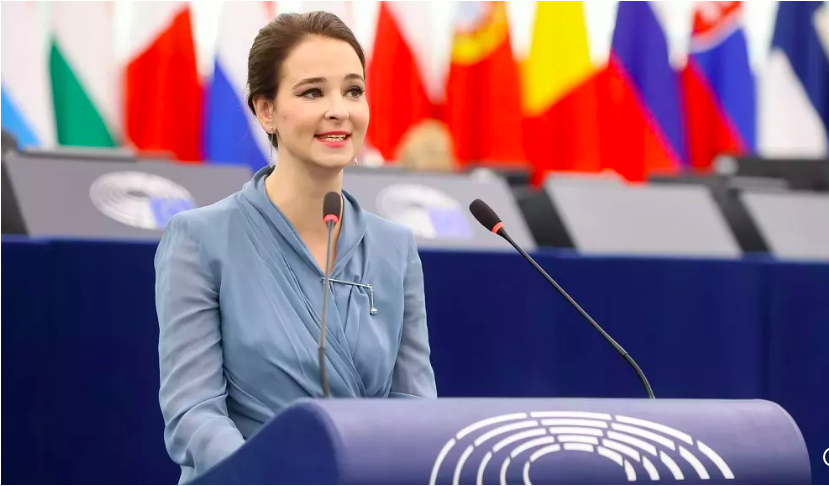8 EU Countries Launch Coalition to Boost Crisis Preparedness Across the Bloc

Eight EU Countries Launch Coalition to Boost Crisis Preparedness Across the Bloc
Eight European Union member states have launched a "coalition of the willing" focused on crisis preparedness, calling for greater coordination across the bloc to bolster resilience against growing threats—both natural and man-made. The coalition, formed on Thursday, includes Belgium, Estonia, Finland, Latvia, Lithuania, Luxembourg, the Netherlands, and Sweden.
In a joint statement, the group emphasised the urgent need for "European coordinated action" to strengthen the EU's collective ability to respond to crises. While crisis preparedness remains primarily a national responsibility under EU law, the coalition argues that today's threats—ranging from military aggression to climate-related disasters—require a cross-border and cross-sectoral response.
Rising Threats Spark Urgency
Swedish Minister for Civil Defence Carl-Oskar Bohlin underscored the coalition's rationale in an interview with Euronews, highlighting destabilising actions by Russia as a key motivator.
"Russia is engaging in destabilising actions that could affect all member states," Bohlin warned. "We can see that this capability could potentially increase if Russia is no longer as involved in Ukraine — if we reach a peace agreement."
He stressed that credible military capabilities must be matched by societal resilience. “We must show that we will never give up. If an adversary were to launch an unjust attack against us, we need to present a robust society that is seen as not worth attacking.”
The coalition cites a wide array of threats requiring improved readiness, including military aggression, hybrid warfare, terrorism, foreign interference, cyberattacks, and disruptions from both natural disasters and technological failures.
A Joint Coalition Agenda in the Works
The coalition plans to implement a Joint Coalition Agenda based on the European Commission's recently proposed Preparedness Union Strategy. This strategic framework aims to harmonise preparedness levels across the 27-member bloc, which currently vary significantly based on geography and threat assessments.
Among the Commission’s recommendations are:
- Stockpiling essential supplies such as medical countermeasures, critical raw materials, and emergency energy equipment.
- Strengthening civil-military cooperation to improve disaster response and infrastructure repair capabilities.
- Educating and training civilians to act as first responders in the event of a crisis.
The most talked-about part of the strategy, however, is the Commission’s proposal for each EU citizen to prepare a 72-hour survival kit. This emergency kit should include food, water, medications, cash, a flashlight, batteries, a portable radio, chargers, warm clothing, copies of key documents, and basic tools like utility knives.
Though some critics called the proposal alarmist, recent events have lent it credibility. A large-scale blackout in Spain last month disrupted critical infrastructure, underscoring the importance of individual and community-level preparedness.
Learning From Best Practices
David van Weel, the Dutch Minister of Justice and Security, emphasised that while the Netherlands has already made strides in national preparedness, collaboration across borders is vital.
“In the Netherlands, we are already working hard on resilience, but it is important not to limit ourselves to national borders,” he said. “Moreover, we can learn a lot from the countries around us that are already more advanced.”
Van Weel pointed to countries like Sweden, Denmark, and the Baltic states as models for building a resilient civil defence system. He also emphasised that preparedness extends beyond emergency kits—it’s about restoring critical infrastructure and ensuring that trained civilians can step in during emergencies.
“You can think of trained citizens as civil protection workers who can help get destroyed electricity sheds up and running again, put out fires or provide first medical aid in a crisis,” he added.
A Step Toward a More Resilient Europe
The coalition is set to meet twice a year, with the next meeting scheduled in Sweden. Euronews reports that Germany and Poland have expressed interest in joining, potentially expanding the initiative's influence within the EU.
This coalition marks a significant step toward a more integrated approach to crisis management in the European Union. With global challenges becoming increasingly interconnected, from geopolitical instability to climate change and cyber warfare, the call for a more unified European preparedness strategy is gaining momentum.
Whether it’s reinforcing power grids, managing supply chains, or empowering citizens, the coalition's efforts could serve as a blueprint for resilience not just in Europe, but globally. As Bohlin put it, the goal is simple but ambitious: to build a society that is "resilient — and not worth attacking."
Conclusion
The formation of this eight-nation coalition marks a crucial turning point in the EU’s approach to crisis preparedness. As threats become more complex and far-reaching—spanning everything from geopolitical instability to natural disasters—individual nations can no longer afford to operate in isolation. By fostering stronger cooperation, sharing best practices, and working toward common preparedness standards, the coalition offers a promising model for building a safer, more resilient Europe. With additional countries like Germany and Poland showing interest, the initiative could soon grow into a powerful force driving EU-wide reform. In an era of unpredictability, readiness is no longer optional—it's essential.
- Art
- Causes
- Crafts
- Dance
- Drinks
- Film
- Fitness
- Food
- Giochi
- Gardening
- Health
- Home
- Literature
- Music
- Networking
- Altre informazioni
- Party
- Religion
- Shopping
- Sports
- Theater
- Wellness


